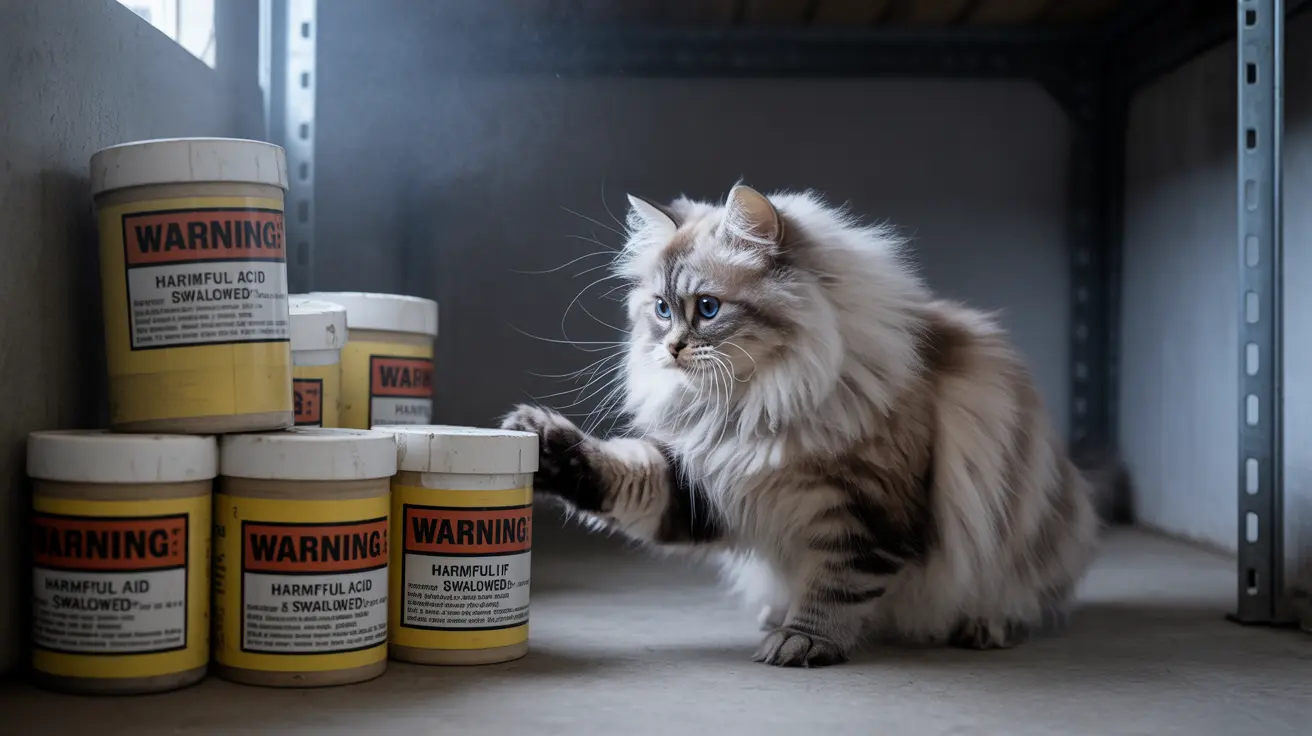Understanding Boric Acid and Its Effects
When dealing with flea infestations, many pet owners consider using boric acid as a natural remedy. However, the question of whether boric acid is safe for cats requires careful consideration. While this compound can effectively kill fleas in certain environments, its use around cats demands extreme caution and understanding.
Boric acid works as an insecticide by damaging the digestive systems of insects and dehydrating them. While this makes it effective against fleas, the same properties that make it lethal to insects can pose serious risks to our feline companions.
The Dangers of Boric Acid for Cats
Veterinary experts strongly advise against using boric acid directly on cats. Cats are particularly sensitive to chemical exposures, and their grooming habits make them especially vulnerable to ingesting substances on their fur. Even small amounts of boric acid can lead to serious health issues if a cat licks it off their coat or inhales the powder.
The risks increase significantly when cats walk through or roll in areas treated with boric acid, as they will inevitably ingest the substance during their regular grooming routine.
Safe Usage in Home Environments
If you choose to use boric acid for flea control, it should only be applied to household surfaces that cats cannot access. Here are essential safety guidelines:
- Keep cats out of treated rooms completely
- Apply only to carpets and floor surfaces after thorough vacuuming
- Never use in areas where cats sleep or spend significant time
- Vacuum thoroughly after treatment and dispose of vacuum bags immediately
- Ensure proper ventilation during and after application
Recognizing Signs of Boric Acid Poisoning
Cat owners should be vigilant for symptoms of boric acid exposure, which can include:
- Vomiting and excessive drooling
- Diarrhea and loss of appetite
- Weakness and lethargy
- Skin irritation or redness
- Respiratory issues
- Behavioral changes
If you notice any of these symptoms, seek immediate veterinary care. Quick intervention can be crucial in cases of boric acid exposure.
Safer Alternatives for Flea Control
Instead of risking boric acid exposure, consider these veterinarian-approved flea control methods:
- Prescription topical flea treatments
- Oral flea medications
- Flea-specific shampoos and sprays
- Regular grooming with flea combs
- Professional pest control services
- Frequent washing of pet bedding
Environmental Flea Management
Effective flea control requires a comprehensive approach that focuses on both your cat and their environment. Consider these safe practices:
- Vacuum frequently, especially in areas where your cat spends time
- Wash pet bedding in hot water weekly
- Maintain a clean and dry outdoor environment
- Use pet-safe environmental flea treatments
- Consider professional pest control services that use cat-safe products
Frequently Asked Questions
Is it safe to use boric acid directly on my cat to kill fleas?
No, it is never safe to apply boric acid directly to cats. The risks of poisoning through ingestion or absorption are too high, and veterinarians strongly advise against this practice.
How should I apply boric acid in my home to control fleas without harming my cat?
If you must use boric acid, keep cats out of treated areas completely. Apply only to carpets and floors, ensure proper ventilation, and vacuum thoroughly afterward. Better yet, consider pet-safe alternatives recommended by your veterinarian.
What symptoms indicate boric acid poisoning in cats, and what should I do if my cat is exposed?
Watch for vomiting, drooling, diarrhea, weakness, and skin irritation. If you suspect exposure, contact your veterinarian immediately. For skin contact, wash the area thoroughly with water.
Why is boric acid effective against flea larvae but not safe for cats themselves?
Boric acid kills insects by disrupting their digestive systems and causing dehydration. However, these same mechanisms can harm cats, whose grooming habits make them particularly vulnerable to ingesting the substance.
What are safer alternatives to boric acid for flea control on cats recommended by veterinarians?
Veterinarians recommend prescription topical treatments, oral medications, and specially formulated flea products designed specifically for cats. These options are both safer and more effective than boric acid.
Conclusion
While boric acid can be effective against fleas, it's not worth risking your cat's health. The potential dangers far outweigh any benefits, especially when there are many safe, veterinarian-approved alternatives available. Always prioritize your cat's safety by choosing products specifically designed for feline use and consulting with your veterinarian about the most effective flea control program for your pet.






